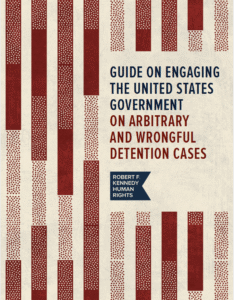Robert F. Kennedy Human Rights and the International Service for Human Rights strongly condemn the attacks on pro-democracy protesters by Chadian security forces resulting in the death of over 50 people and injuring hundreds. We urge the transitional authorities to take all necessary measures to ensure the respect for human rights in Chad and accountability for these egregious violations.
The recent protests in Chad are in response to the controversial extension of military rule in the country under General Mahamat Idriss Deby Itno. General Mahamat seized power in April 2021 following the death of his father, President Idriss Deby, who ruled the country for three decades. Upon assumption of power, Gen. Mahamat layed out an 18-month transition plan including an inclusive national dialogue on constitutional reforms and elections to return the country to civilian rule. However, after a 16-month delay, the dialogue commenced in August 2022. Arising from the dialogue, the Mahamat led Transitional Military Council (TMC) adopted a decision to extend the transition period for two years. This extension clears the path for General Mahamat to remain in power as interim president until October 2024, despite Gen. Mahamat’s public declarations that he would not participate in the general elections following the transition period. This decision breaches the directive of the African Union’s Peace and Security Council.
“I am deeply concerned by the situation in Chad and call on the interim government to ensure the protection of human rights defenders and protesters. Robert F. Kennedy Human Rights stands with the Chadian people, as well as by our 2004 Human Rights Award Laureate Delphine Djiraïbé who continues to work tirelessly towards the protection of human rights and the advancement of democracy in the country” said Kerry Kennedy, president of Robert F. Kennedy Human Rights.
The long standing attacks on civic space in Chad have continued under General Mahamat Idriss Deby Itno and the Transition Military Council. Particularly, the military junta has targeted, abducted and arbitrarily detained human rights defenders, journalists and opposition politicians critical of the military rule in the country. Following protests between April and May 2022, over 700 people were arrested, detained and reportedly tortured by security forces. The regime has used death threats and in some cases made assassination attempts on critical voices. In April 2022, Baldal Oyamta, the coordinator of the Chadian League for Human RIghts, was wounded in his forehead after he was shot at close range by a former military operative in his home. Prior to the attack, Baldal had received multiple text messages referring to his human rights work in the country. The recent attacks led to the death of Chadian journalist Oredje Narcisse and musician Ray’s Kim, among others.
“During the latest protest on 20th October, the military used excessive force causing the death of around 50 people and injuring more than 300. It is imperative that the authorities conduct independent investigations of these events and ensure the perpetrators are held responsible by an independent justice system. The enjoyment of the right to peaceful assembly should never lead to death” added Adélaïde Etong Kame, Africa Programme Manager at the International Service for Human Rights.
Given the controversial extension of military rule in the country and the desire for the junta to remain in power, there is a strong possibility of further crackdowns on protest and brutal attacks on human rights defenders. Robert F. Kennedy Human Rights and the International Service for Human Rights therefore urge:
-
The international community to pressure the interim military government in Chad to heed the demands of the people and return the country to civilian rule including through targeted sanctions on people responsible for these attacks;
-
The United States and French governments to suspend all cooperation with the Chadian military and security forces pending the return to civilian rule; and
-
All intergovernmental organizations, including the African Union, United Nations and European Union to continue using their good offices to guarantee the protection of human rights defenders, journalists and all Chadians.




